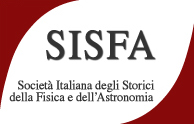Speaker
Description
Pi meson, 1947: the rise of what came to be known, with an edge of contempt, as "the pion industry"; and, in turn, represents the real beginning of "the particle zoo": a wealth of new experimental data and the proliferation of purported elementary particles encoded in it. Saluted enthusiastically by most, this situation of abundance does raise—it might seem bizarre today—also recalcitrant reactions among distinguished scientists who were far from being of the "reactionary" kind. One such example is represented by Yoichiro Nambu who, initially involved with the result from accelerators, challenges though the search for models whose results are compatible with experimental data, but without questioning whether the way these results are drawn is legitimate from the standpoint of meson field theory. A geopolitical contextualization right after WWII could suggest that in countries such as Japan, cut out from cutting-edge experimental research in those areas, the pride of previous successes of a national scientific tradition led to compensate that exclusion with an emphasis on deeper levels of theorising, embedded within some grand narrative stressing the national glory. That is an interesting key of interpretation, but it does not really befit Nambu, imbued with that tradition but without nationalistic overtones; nor is it capable of explaining how come the reaction was shared by people such as J.A. Wheeler, at the peak of his career as a nuclear physicist in Princeton. In this paper we examine, in reference to that period, some unexpected affinities (accompanied by proper distinctions) between Nambu in Japan and Wheeler in the US. Far from being a missed opportunity, their "reactions" played a crucial role in shaping their heuristic methodologies and their styles of doing physics, thus preparing the new paths that, in the following decades, they were going to open.

